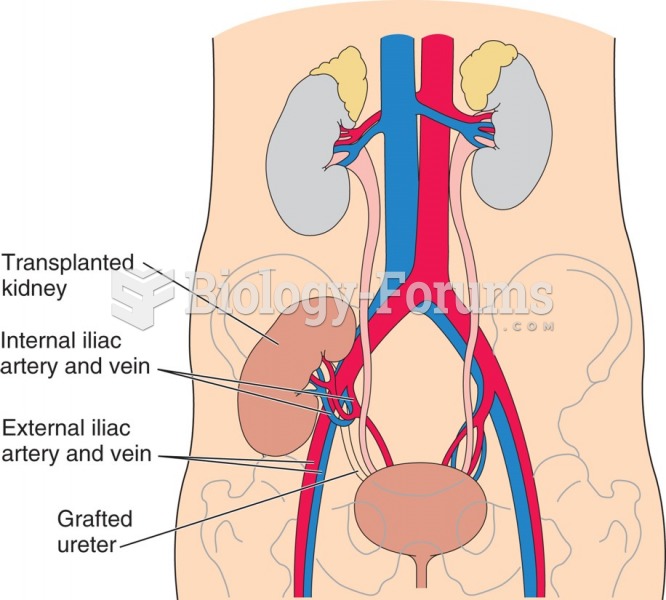Answer to Question 1
Correct Answer: 1,3,4
Rationale 1: Acute rejection occurs in the first 48 hours after transplant.
Rationale 2: Rejection of an allograft may occur months or years after transplant.
Rationale 3: Antirejection medications are given for at least several months and are sometimes continued at a lower dose indefinitely.
Rationale 4: Chronic rejection of the transplant may occur months or even years after surgery.
Rationale 5: Rejection can occur anytime, from the first few hours after surgery to years later.
Global Rationale: Transplant rejection, is often acute; antibodies sometimes destroy the transplanted tissue within 48 hours after a transplant. The cell-mediated branch of the immune system responds more slowly to the transplant, attacking it about 2 weeks following surgery. Chronic rejection of the transplant may occur months or even years after surgery.
Answer to Question 2
Correct Answer: 1,3
Rationale 1: BCG is used to stimulate immunity against Mycobacterium tuberculosis.
Rationale 2: BCG is not given to treat cervical cancer.
Rationale 3: A form of BCG is used to treat cancer of the bladder.
Rationale 4: BCG is not given to treat active tuberculosis.
Rationale 5: BCG is not given to treat Hashimoto's thyroiditis.
Global Rationale: BCG vaccine is a live, attenuated vaccine that is available in two distinct strains with different indications. Tice is used to stimulate immunity against Mycobacterium tuberculosis. Vaccination with BCG simulates exposure to tuberculosis and induces an immune response against the organism. This drug is used to prevent tuberculosis and is not given to treat active infections. TheraCys is approved for the prophylaxis and treatment of patients with superficial bladder cancer. It is not indicated as treatment for cervical cancer, active tuberculosis, or Hashimoto's thyroiditis.







